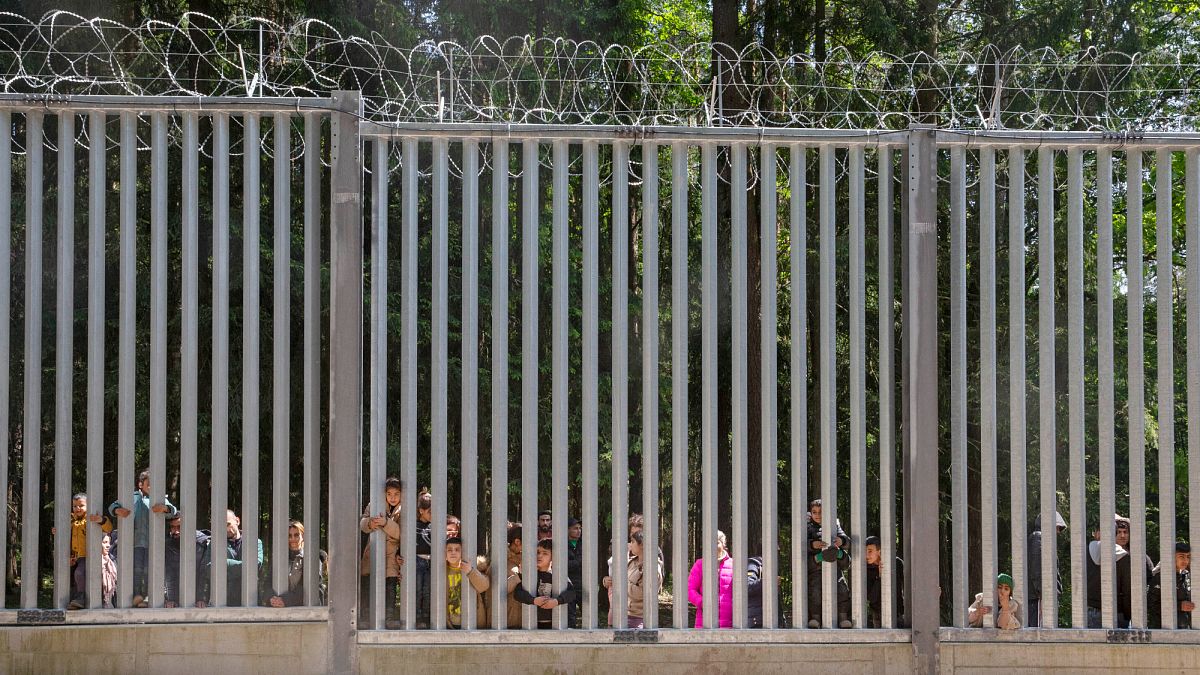ADVERTISEMENT
Funds dedicated to migration are tripled in the EU Multiannual Financial Framework (MFF) proposal, but the lion’s share, €48 billion, has been earmarked for policies related to border protection and police operations.
Of the total €74 billion earmarked in the MFF “to make Europe safer and more secure”, €26 billion will be dedicated to migration management, including issues related to reception of asylum seekers and other non-border related issues.
Commission President Ursula von der Leyen’s €2 trillion MFF proposal is designed to cover the seven-year period after 2028.
In the previous 2021-2027 budget, €25 billions in total were allocated to migration, with €14 billion aimed at border management and €11 billion to asylum reception and integration.
The ratio of budget allocated to border management has therefore increased from almost evenly balanced to two to one vis-a-vis migration reception systems.
In the next budget cycle EU border agency Frontex alone would bag €12 billion under the proposal, and is expected to undergo a sea change next year, with a sharp increase in staff and new rules of engagement at EU borders.
On top of these funds, other budget lines earmarked under the so-called “Global Europe Instrument” could be used to deter migrants from arriving in Europe.
The external action of the EU includes macro financial assistance to third countries, which is often linked to their commitment to prevent migrants’ departures from their shores.
Funds to third countries that fail to manage irregular migration may be suspended, except humanitarian aid, said an EU official.
Critics from civil society
The approach has been criticised by human rights groups which monitor the work of the Commission on migration.
“The home affairs funds proposal focuses on border management at the expense of asylum and inclusion,” the European Council on Refugees and Exiles (ECRE) told Euronews in a statement.
“The proposals regarding border and migration policies again focus heavily on militarising borders, escalating the course the EU has been on for over a decade, despite its continued failure in all aspects,” Mark Akkerman, researcher at Stop Wapenhandel and the Transnational Institute told Euronews.
“Billions in proposed spending will end up primarily in the pockets of arms companies, while people on the move will continue to face death, violence, risks and human rights violations,” he added.
“What we know is that the proposal is to increase resources for funds that have sponsored violent border surveillance in the past, like the Border Monitoring and Visa Instrument or the Internal Security Fund. The same goes for Frontex, an agency that’s been accused of complicity in human rights violations at the borders multiple times,” Chiara Catelli, Project Officer at PICUM, the umbrella organisation for undocumented migrants, told Euronews.
Euronews asked some clarification to the European Commission on the long term spending, without receiving a reply at the time of publication.
This reporting is based on MFF budget information available up to this point – no legal texts have been published yet.
Read the full article here


